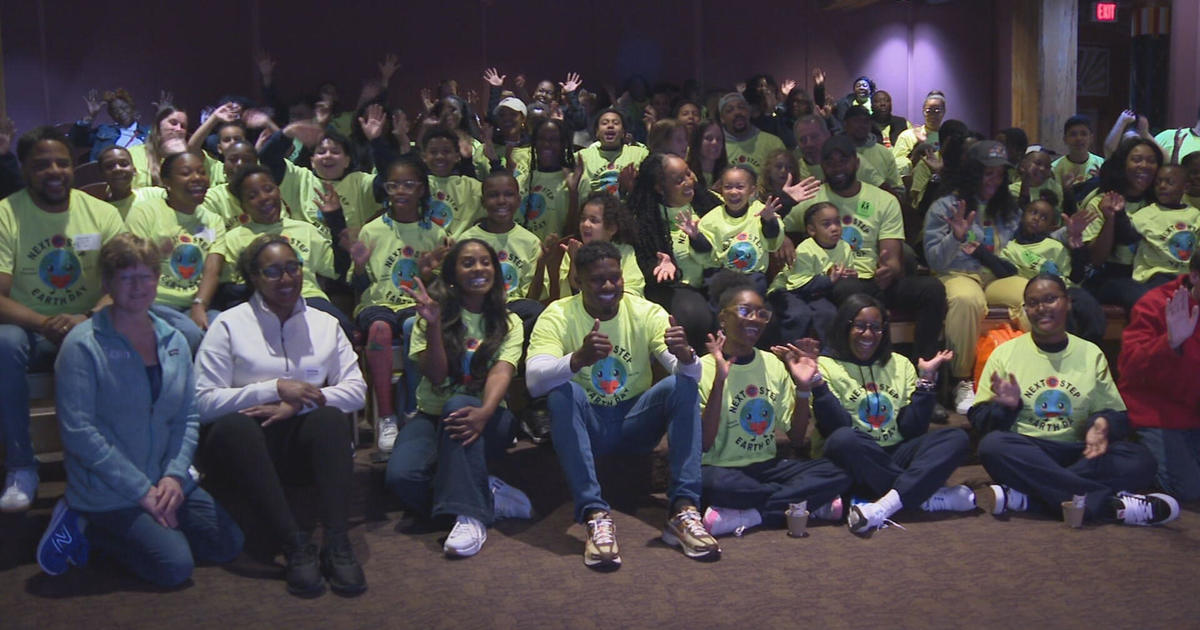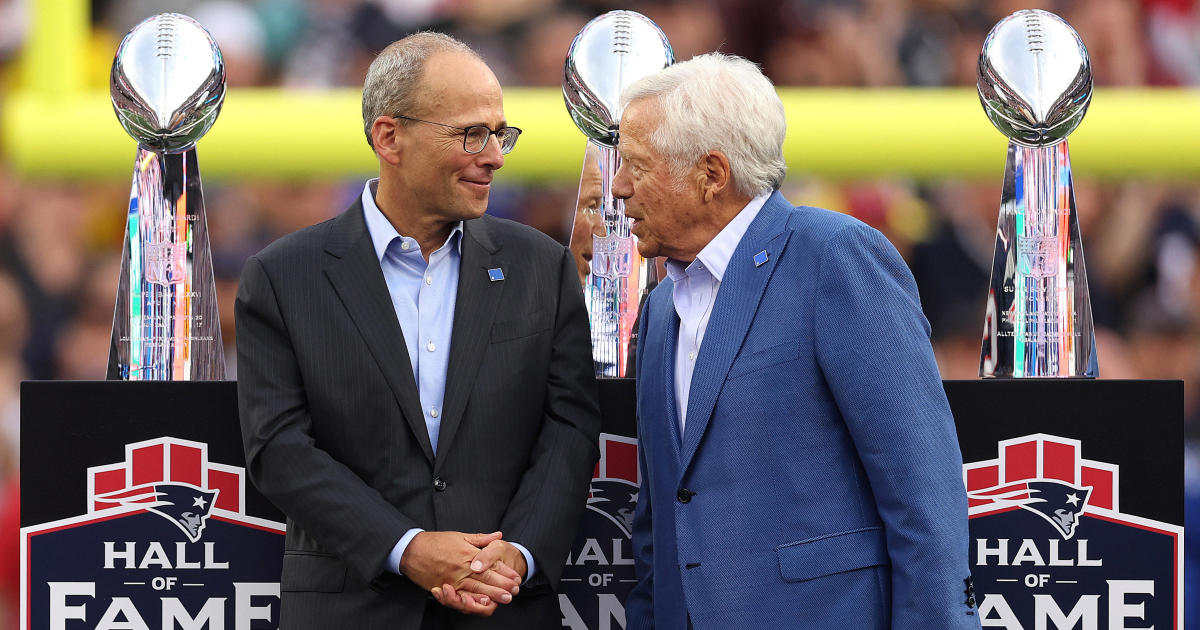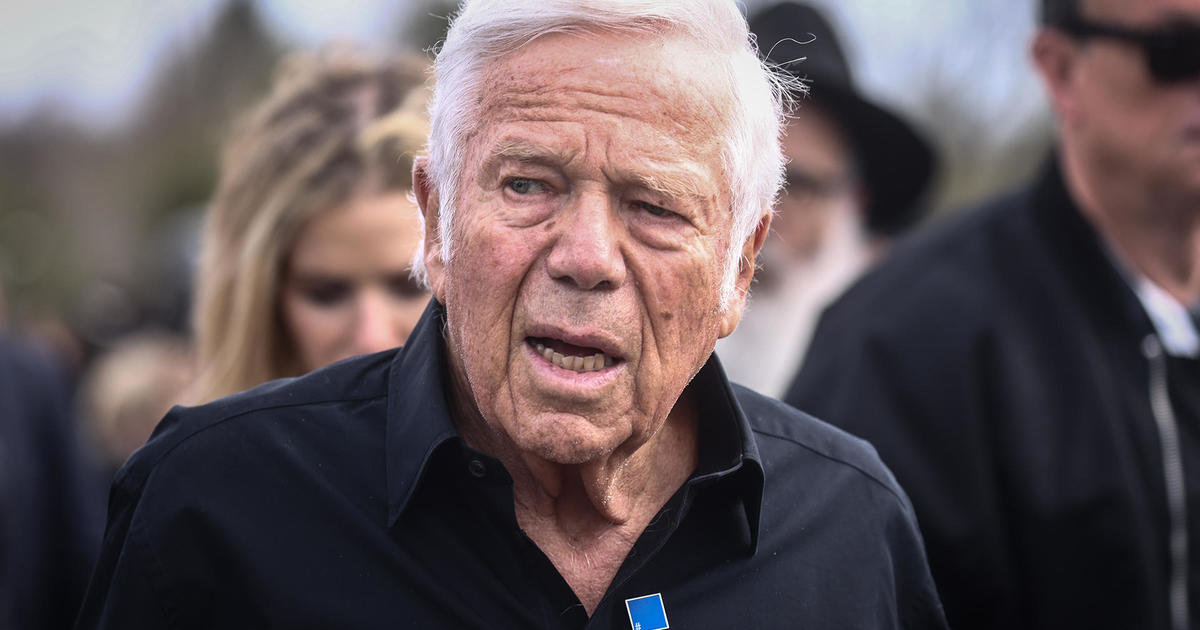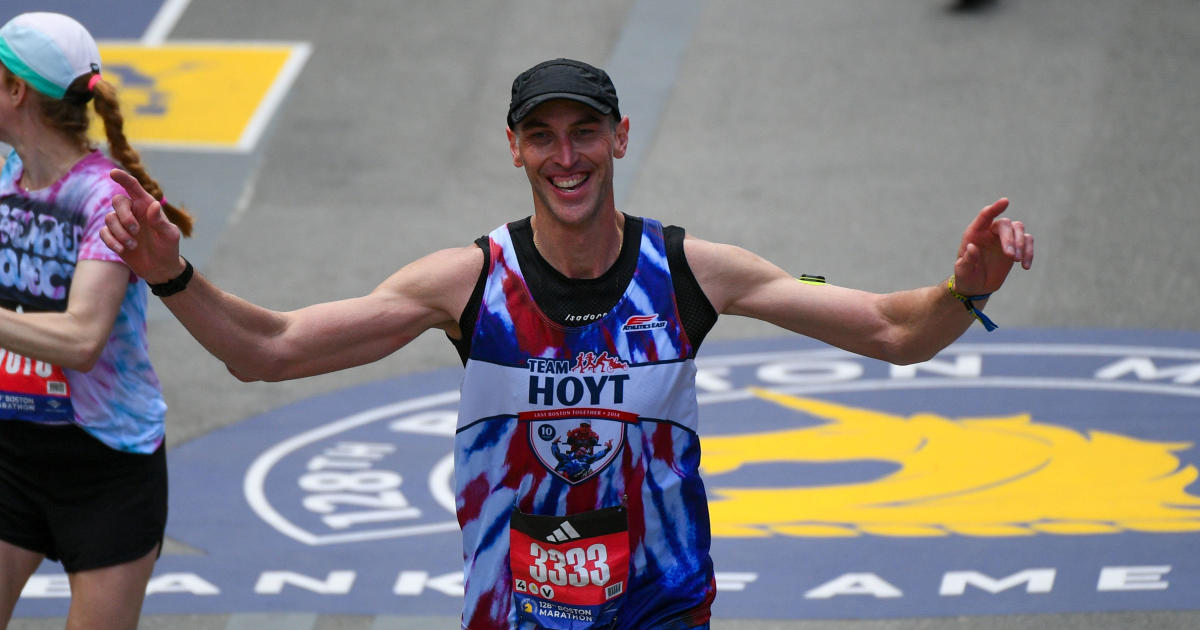Patriots Argue Against NFL In Amicus Filing With Second Circuit To Support Tom Brady
By Michael Hurley, CBS Boston
BOSTON (CBS) -- The New England Patriots have just taken their strongest stance yet against the National Football League in the never-ending DeflateGate saga.
The team filed an amicus curiae brief with the Second Circuit on Wednesday, arguing that commissioner Roger Goodell did not follow the rules laid out by the CBA during the disciplinary process of Tom Brady.
The eight-page filing was written by attorney Daniel Goldberg, who wrote the infamous Wells Report In Context, a website that is still linked from Patriots.com and was updated this week.
"... [T]he impact of the majority opinion is not limited to professional football," Goldberg wrote. "It threatens to undermine vital principles governing arbitration of collective bargaining agreements throughout the national economy."
Though the brief came directly from the New England Patriots -- an NFL member club, of course -- it did not mince words in its criticism of the league.
"Unfairness has permeated the entire handling of this matter by the League," it said. "Among other matters, and as set forth in Appellees' Petition for Rehearing, the Commissioner treated Mr. Brady's appeal not as an appeal but as a continuation of the investigation."
The critical argument from the Patriots is that the element of fundamental fairness was absent in Brady's appeal process.
"The panel's decision raises issues of exceptional importance: the fundamental fairness of arbitration proceedings, an arbitrator's duty to 'give each of the parties to the dispute an adequate opportunity to present its evidence and argument,' and the arbitrator's duty to hear all 'pertinent material evidence,'" the Patriots argued.
In a footnote at the bottom of the first page and into the second page, the real stance of the Patriots could be found.
"From the outset of this matter the League's conduct reflects less a search for the truth than pursuit of a predetermined result and defense of a report which, despite no direct evidence of tampering or Mr. Brady's involvement, was relied on to impose penalties with no precedent or correlation to the alleged offense. The League's commitment to the conclusions of the Wells Report on which the penalties were based was so absolute that in Mr. Brady's appeal one of the chief Paul Weiss investigators and an author of the Report, Mr. [Lorin] Reisner, served as the League's counsel and examined witnesses. In addition, at the very outset of the investigation the League leaked materially incorrect PSI information and refused to correct it for months, allowing public misperceptions to fester. At the AFC Championship Game itself, and despite having no knowledge of the impact of weather on PSI (as admitted under oath), League personnel were already accusing the Patriots of cheating. The League made a 'preliminary finding' of wrongdoing by Patriots' employees less than 24 hours after the Game. Penalties were imposed only three business days after receipt of the 139 page Wells Report and the 82 page Exponent Report and obviously without any critical assessment of either. The Commissioner publicly praised the Wells Report, imposed penalties based on it, and then insisted on hearing and deciding Mr. Brady's appeal himself despite the authority to appoint an independent person to do so. When evidence at that hearing did not provide support for enhanced findings against Mr. Brady (to go beyond 'general awareness' of violations by others), the Commissioner made new findings and changed the basis on which Mr. Brady was being penalized."
Goldberg then attacked the NFL's haphazard testing procedures of the PSI in the footballs, and he also referenced the amicus brief filed by physics and engineering professors a day earlier. The brief also includes multiple links to critical science articles which have been posted at the Wells Report In Context site.
Specifically on Goodell, the brief spotlighted when Goodell "misstated the evidence" when he said that Brady only admitted to talking about football preparation for the Super Bowl when he spoke with John Jastremski in the days following the AFC Championship Game. It also criticized Goodell's reliance on the destroyed cell phone as evidence of guilt.
"... [T]he League already had the content of texts from the cell phones of Messrs. Jastremski and [Jim] McNally — the only two individuals who the League asserted carried out the purported scheme. Like the new 'evidence,' the new findings and the new basis for penalties divined by the Commissioner at the appeal hearing, the pre-existing circumstantial evidence relied on to penalize Mr. Brady did not provide a rational basis on which to conclude he violated any rules of the League."
In another footnote, Goldberg argued that it violated fundamental fairness when Paul Weiss and the NFL denied Brady and the NFLPA access to interview notes from the investigation, notes which were "actually akin to transcripts."
"The withheld interview 'notes,' moreover, are neither privileged communications nor work product — they were not prepared in contemplation of litigation, but as part of an 'independent' investigation," Goldberg wrote.
The brief concluded with a strong stance in support of the union, despite the omission of "NFLPA" from anywhere in the filing.
"The panel majority's opinion ignored or excused these fatal failings," Goldbert wrote. "It endorsed the outcome of a highly manipulated and fundamentally unfair process designed and used by the Commissioner to reach and justify a predetermined outcome in violation of the CBA and this Court's precedents. It renders meaningless the vital protections afforded by a bargained-for right to appeal and to obtain and present pertinent evidence. Its impacts will be felt far beyond the NFL. This Court should grant a rehearing and restore the fundamental fairness of arbitration appeals guaranteed by the CBA and this Court's cases."
While the brief is not an instance of the Patriots filing any sort of lawsuit against the NFL, it remains very rare for a team to issue such a strong statement against the league and the commissioner in an official court document.
Patriots owner Robert Kraft has at times expressed a fire-and-brimstone attitude against the league for its treatment of the team and Brady throughout the process, but aside from the strongly worded blog site, he has not done much to actually take a stand against the NFL and Goodell. Wednesday's court filing would certainly qualify as a change in that status.



